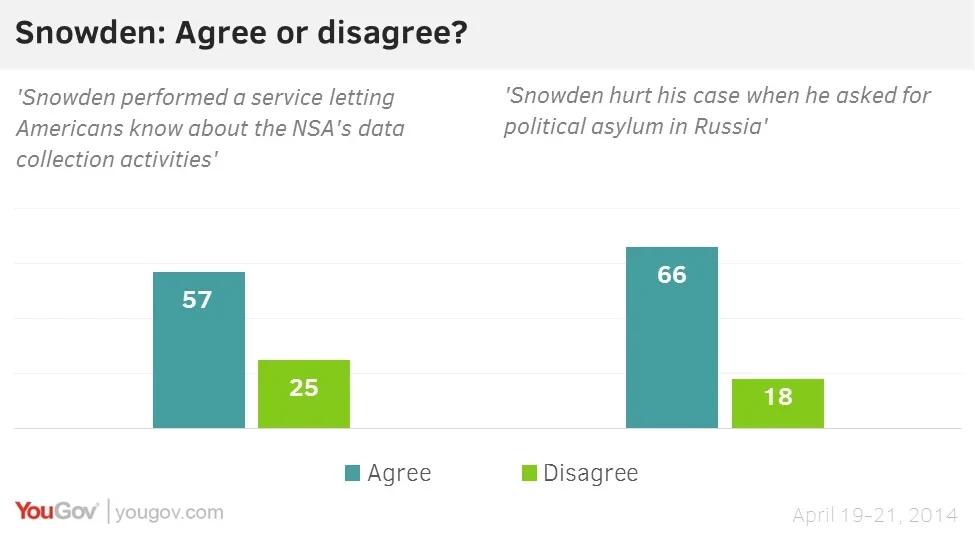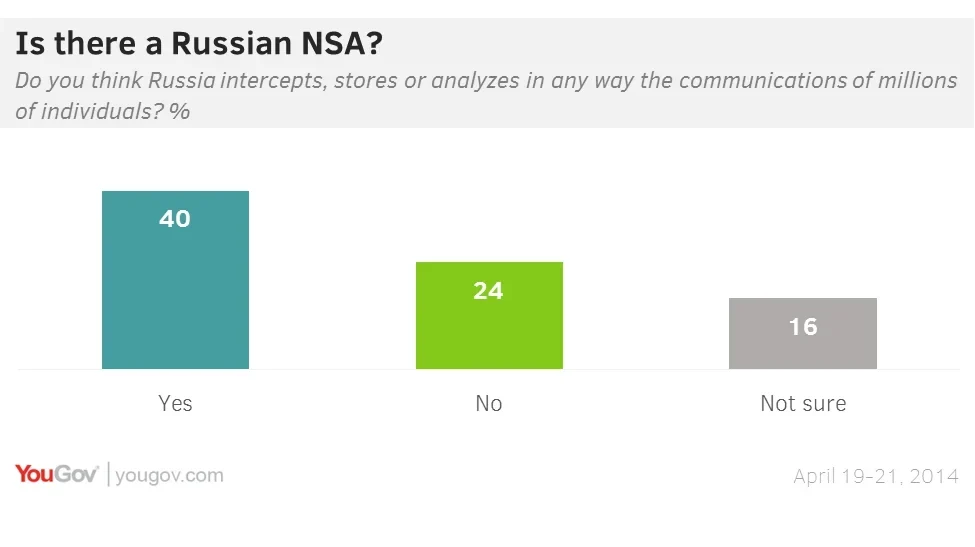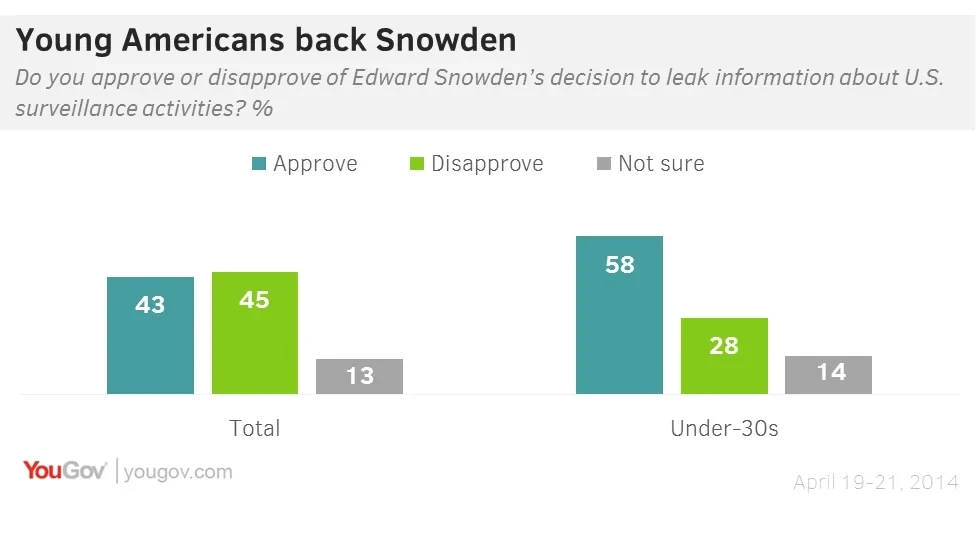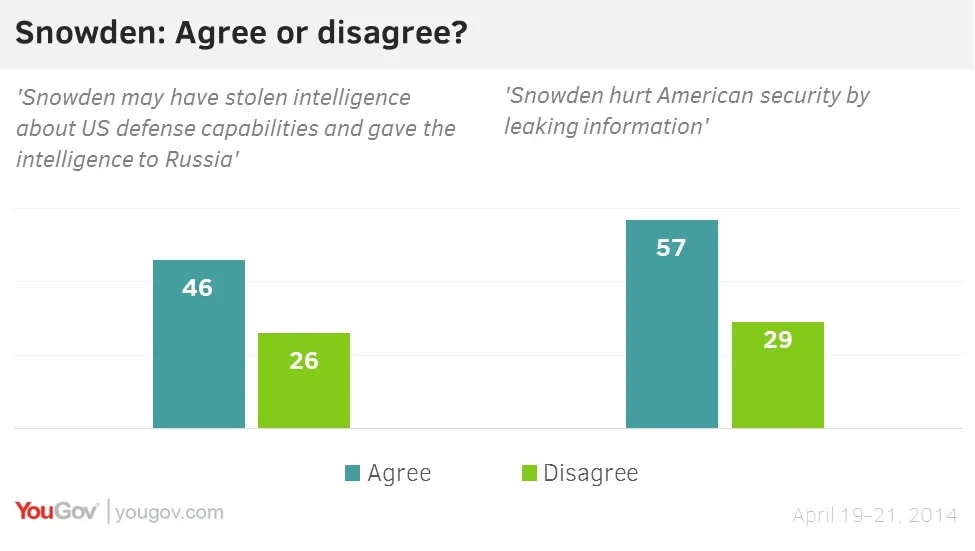Most people think that Snowden did a good thing for the country by letting us know about the NSA's domestic spying, but few think he did himself any favors by fleeing to Russia
Many Americans gave Edward Snowden the benefit of the doubt when he leaked information about the National Security Agency’s surveillance activities last year, but he lost the sympathy of many when he sought asylum in Russia. Even today, in the most recent Economist/YouGov Poll, although 60% agree that he performed a public service by letting Americans know about the NSA’s surveillance activities, even more—68% -- agree that he hurt his case when he took asylum in Russia.

Last week, Snowden participated in a televised question and answer session with Russian President Vladimir Putin. His question to Putin about whether the Russian government intercepted, stored and analyzed information about millions of Russian citizens turned into a denial and evasion by Putin, and Snowden was criticized for his question, with some claiming he was cooperating with the Russian government. Snowden denied these charges, claiming he was trying to get Putin on record about Russian surveillance, and to open a door to discussion of surveillance tactics in Russia. Fortunately perhaps for Snowden, this ill-planned entry into Russian politics was missed by most Americans – 59% of whom claim to have heard nothing about this incident. But even if they had, the American public wouldn’t have believed Putin’s answer: by five to one they believe Russia does just what Putin said it does not.

There are continued bad feelings about Putin – exacerbated as well by the Russian takeover of Ukraine’s Crimea. By 64% to 26%, Americans have an unfavorable view of Putin. Half say Russian relations with the United States have become less friendly since Putin became the Russian leader. By 45% to 25%, Americans regard Putin himself as a threat to the United States. So Snowden’s relationship with the Russian President clearly wins him no friends in the United States. Opinions of Snowden remain negative, where they have been since he sought asylum in Russia in July.
But the public is more conflicted about Snowden’s original action. Nearly the same percentages approve as disapprove of the original leak of NSA surveillance activities. The poll was conducted soon after The Guardian and The Washington Post were awarded the 2014 Pulitzer Prize for Public Service for their reporting on NSA surveillance based in part on the information Snowden provided. In past polls, Americans have been closely divided on the act itself.

Snowden definitely has supporters, and they come from those closest to him in age. While both Republicans and Democrats disapprove of Snowden’s actions, those under 30 approve -- and approve by more than two to one. Young adults also oppose prosecuting Snowden; and while both Democrats and Republicans view Snowden unfavorably, those under 30 are positive about him, 50% to 30%.
Just as Americans think Snowden performed a public service by leaking information about NSA surveillance, 56% of the public also accepts that – at least at first – he had good intentions. But Americans also see the damage he may have caused (59% agree that he hurt U.S. security by his leaks) and don’t like his attempts to save himself from prosecution (62% say he should have been willing to stay in the United States and accept the consequences of his actions).
But there may be another worry about Snowden that nags at Americans: what has he done in Russia? By 49% to 38%, Americans say he might have given information about U.S. surveillance activities to the Russians. Republicans tend to be especially concerned: 56% of Republicans think Snowden might have stolen intelligence and given it to the Russians.

This possibility may seem especially worrisome to Republicans: a majority of them see Putin as a threat to the United States.
Image: Getty
Full results can be found here.
Economist/YouGov poll archives can be found here.










